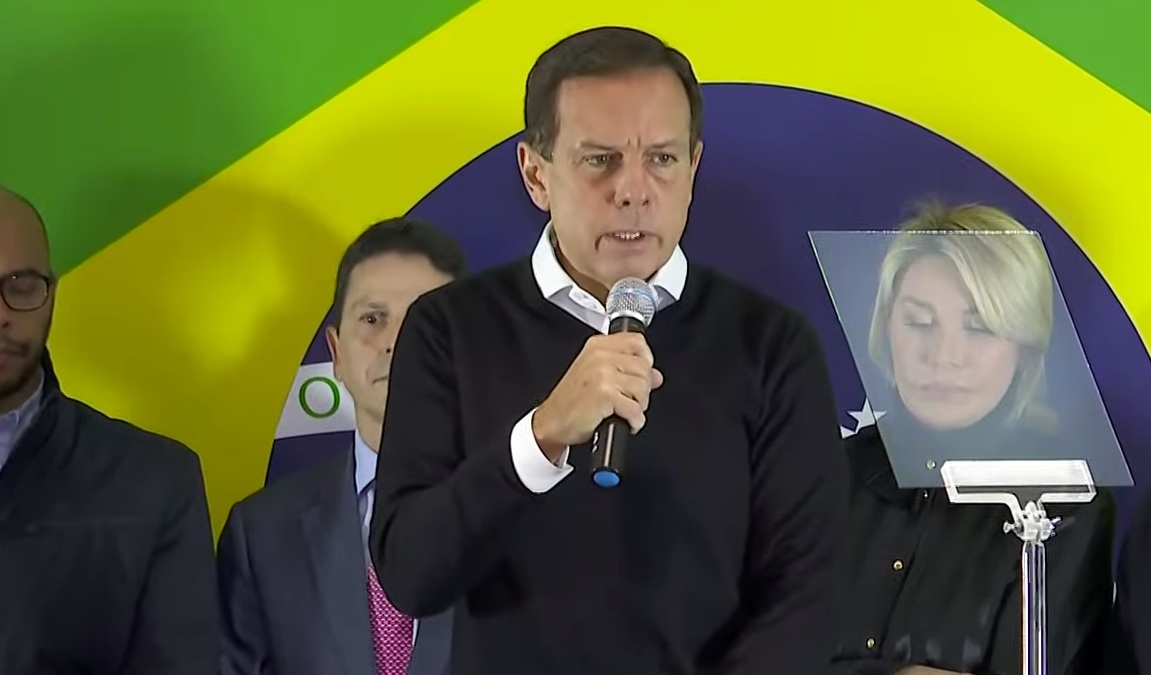João Doria, a former São Paulo governor, announced on Monday that he will no longer run for president. “I’m not the person chosen by the [Brazilian Social Democracy Party’s] top brass. I withdraw with a broken heart, but my soul is light,” he said, in a prepared concession speech. “I leave the same way I entered politics, full of ideas and hope, trusting the force of the Brazilian people,” he added.
In his speech, the politician patted himself on the back for being the first to bring Covid vaccines to Brazil. While the federal government took an anti-vax stance, Mr. Doria signed a deal with Chinese pharmaceutical giant Sinovac — forcing President Jair Bolsonaro into taking a more serious approach to coronavirus immunization.
Despite winning the primaries of his Brazilian Social Democracy Party (PSDB) last year, Mr. Doria, who has been a highly divisive figure since entering politics in 2016, was never capable of rallying his troops. The party’s runner-up, former Rio Grande do Sul Governor Eduardo Leite, constantly tried to negotiate behind the scenes to steal Mr. Doria’s position on the presidential ticket.
Late in March, Mr. Doria was forced to pull a stunt and threaten to implode his party’s coalition in the state of São Paulo (a PSDB stronghold for decades which is now under threat) unless he was made the party’s presidential nominee.
Parked in the low single digits in all polls, the former governor was never capable of twisting his allies’ arms into accepting his nomination.
The end came last week, as parties from the center-right rallied around Senator Simone Tebet, of the Brazilian Democratic Movement (MDB) party. Despite being unknown to the average voter, Ms. Tebet doesn’t face the same level of rejection as Mr. Doria.
As Brasília correspondent Amanda Audi explained last week, the goal for the center-right is no longer to be competitive in the presidential race, which remains polarized between former President Lula and incumbent Jair Bolsonaro. Instead, the parties want to capitalize on voters who reject both frontrunners in order to elect a larger bench in Congress.


 Search
Search






































